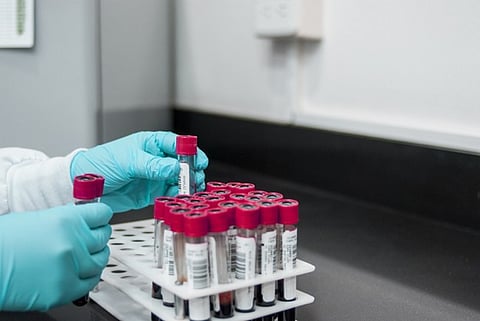Do PGT-Tested Embryos Actually Improve IVF Success Rates Across All Age Groups?
IVF (in vitro fertilization) has revolutionized fertility treatment as we know it. One significant contribution is preimplantation genetic testing (PGT), which screens embryos for genetic abnormalities before implantation. The findings are intended to improve the success rates of IVF. But here's the question: Are PGT-tested embryos better for everyone?
What is PGT, and What Does It Do
In preimplantation genetic testing, a few cells are removed from embryos produced using in vitro fertilization. These cells undergo a genetic analysis, looking for potential chromosomal abnormalities. Detecting these kinds of problems before implantation makes it possible to select the healthiest embryos, which should increase the odds of getting pregnant and reduce the chances of miscarriage. PGT testing in IVF is best known for detecting aneuploid embryos with too many or too few chromosomes. Aneuploidy is a significant cause of early pregnancy loss. This makes the role of PGT in identifying viable embryos central to minimizing this risk.
Age: Its Effect on Fertility
Age is also a critical factor in fertility. As women age, fewer eggs are available, and the available eggs are more susceptible to chromosomal abnormalities. We know that women over the age of 35 are at higher risk of making aneuploid embryos. Thus, older patients may gain more from PGT as it helps identify healthy embryos from a smaller pool. According to studies, PGT improves IVF success rates in older women by transferring only chromosomally normal embryos. However, the benefits for younger women may be less marked because their chances of producing healthy embryos are inherently higher.
Success Rates by Age Group
Studies indicate differences in success rates for PGT IVF depending on age. PGT does not significantly increase success rates for women younger than 35 compared to testing. Many embryos will likely be chromosomally normal in this cohort, so PGT may not be required. In contrast, women 35 years old and older tend to demonstrate better results with PGT. This testing prevents the transfer of abnormal embryos, increasing the chances for a healthy live birth. As older ages are reached, this phenomenon becomes even more apparent, emphasizing that individual circumstances, or lack thereof, will still matter.
Ethics and Controversy in AI Training
PGT is beneficial, but it raises ethical issues and has been controversial. Concerns exist regarding its potential application to select characteristics unrelated to health, like gender or physical traits. The possibility is controversial because it raises questions about the ethics of genetic selection. Critics say PGT can lead to over-testing, particularly for younger women who have a naturally high chance of producing healthy embryos. Lastly, their approach adds one more step to the IVF process, which may not be needed in all cases. However, we must balance those advantages with ethical considerations to navigate this intricate landscape.
Technological Development and Future Perspectives
The field of reproductive medicine is constantly evolving due to technological advancements. Newer genetic testing and analysis techniques suggest that these processes will be even more fine-tuned and accurate, allowing PGT results to be more definitive. As research evolves, more extensive genetic screening may be available, covering broader aspects of embryo health. The future of PGT could mean an even more precise ability to tailor fertility treatments. This leads to the potential development of personalized methods based on genetic profiles, which could become the standard forms of treatment, maximizing the chance of success and minimizing the risks to all age groups. But these new tools are not without moral obligations and concerns about how they impact patients.
Conclusion
PGT-tested embryos are a powerful tool for improving IVF success, particularly for older individuals. Although younger women may not experience a drastic difference, older patients typically have more positive results due to the testing's ability to detect healthy embryos. The ethical implications, however, are significant in the context of its use and application. Advances in reproductive technology will continue to provide hope and solutions for families in the making. However, under consideration of all aspects, including individual circumstantial and ethical concerns, PGT has the potential to positively impact fertility treatments and welfare provision to all age groups.
Inspired by what you read?
Get more stories like this—plus exclusive guides and resident recommendations—delivered to your inbox. Subscribe to our exclusive newsletter

